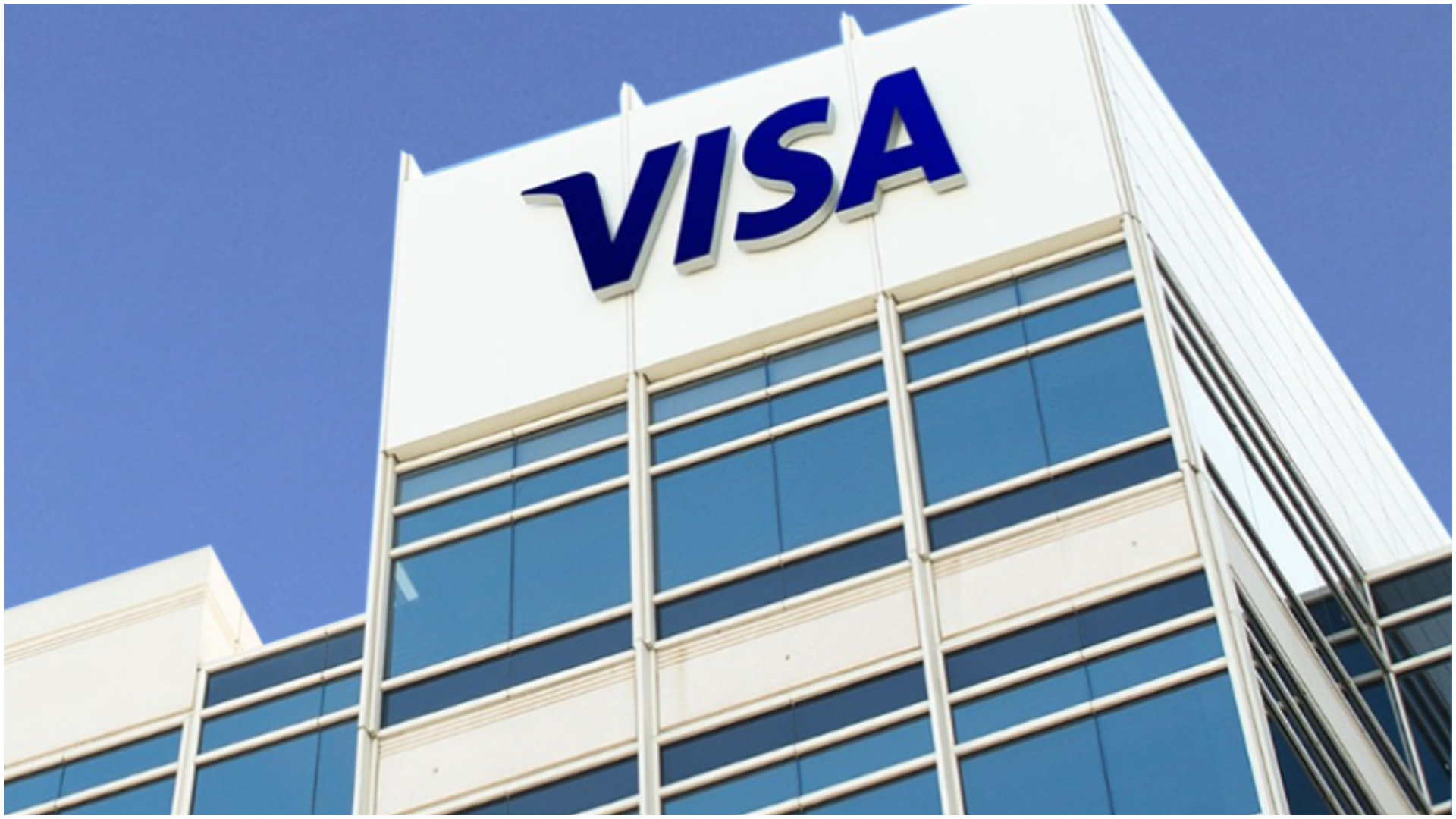Data Sovereignty and Infrastructure: Why Visa’s Johannesburg Data Centre Matters for African Fintech

In July 2025, Visa made a quiet but powerful move that could redefine Africa’s digital financial landscape. The opened their first-ever African data centre, located in Johannesburg, South Africa.
At first glance, this may seem like just another milestone in the tech giant’s global expansion strategy. However, this development speaks to something far more significant which includes data sovereignty, infrastructure independence, and Africa’s growing desire to own its digital economy story.

The Power Beneath the Servers
Data is the new oil. And in Africa, where fintech has exploded in the past decade, data is not just fueling innovation, it is determining who controls the future of finance.
For years, most African fintech data has been processed and stored in servers located outside the continent, mainly in Europe or North America. This meant that the bulk of Africans’ financial data including transactions, credit scores, spending patterns, was being handled under foreign jurisdictions.
Visa’s decision to build a data centre in Johannesburg shifts this dynamic. For the first time, African fintech transactions processed through Visa’s vast network will have the option to be stored and handled locally. The implications are profound.
It reduces latency and transaction times, enhances cybersecurity by minimizing cross-border vulnerabilities, and most importantly, gives African nations more control over their citizens’ financial data.
What Is Data Sovereignty and Why Does It Matter?
Data sovereignty refers to the idea that digital information is subject to the laws and governance of the nation in which it is collected. Simply put, if your citizens’ data is stored within your borders, your government has the authority to regulate it, protect it, and determine how it can be used.
In Africa’s context, this concept hits home. The continent has experienced rapid fintech growth with Nigeria, Kenya, Egypt, and South Africa leading the pack, but this growth has been tethered to external infrastructure. Most startups use cloud services from Amazon Web Services (AWS), Google Cloud, or Microsoft Azure, all headquartered in the United States.
While these services provide scalability, they also come with dependence. African governments have limited visibility into how their citizens’ financial data is stored or processed abroad.
By localizing data processing in Johannesburg, Visa is not only complying with emerging regulatory trends, it is acknowledging Africa’s demand for digital self-determination. In a world where data privacy has become political currency, this move is symbolic.
Africa’s Digital Gold Rush: The Fintech Connection
Over the past decade, Africa has become the global testbed for fintech innovation. Fintech solutions have emerged to bridge long-standing gaps in access to banking. The result is staggering: Africa’s fintech market is expected to reach $65 billion in revenue by 2030, according to the research.
But while fintech has empowered millions of unbanked Africans, the infrastructure behind it often remains foreign. A digital payment in Lagos could easily travel through servers in Dublin before being approved. Every millisecond of delay costs money; every border crossed exposes the system to regulatory gray zones.
The Visa data centre in Johannesburg aims to close that loop. It promises faster payment processing, reduced costs for fintech startups, and a secure foundation for cross-border trade which is a critical enabler for initiatives like the African Continental Free Trade Area (AfCFTA).
More importantly, it establishes a precedent where global tech companies are beginning to recognize that Africa deserves to host and protect its own data.
The Race for Local Infrastructure
Visa is not alone. Other major players are also racing to establish local infrastructure hubs. Microsoft launched its first Azure data regions in South Africa back in 2019. Amazon followed suit with AWS Africa (Cape Town) in 2020.
Google Cloud’s local region went live in Johannesburg in 2022. But Visa’s move marks the first major financial network to anchor its data operations on African soil.
This matters because fintech is not like social media or entertainment, it deals directly with money, regulation, and trust. Data localization in the financial sector introduces layers of accountability that were previously absent.
It allows African regulators to monitor compliance more closely, enforce anti-money laundering (AML) and data protection laws, and set clearer frameworks for emerging sectors like digital lending and cross-border remittances.
The South African Reserve Bank (SARB) has already hailed Visa’s investment as a step toward strengthening local payment ecosystems. For startups and established fintech firms alike, this could mean fewer regulatory bottlenecks when integrating with international networks.
Sovereignty Meets Security
Beyond control, data sovereignty is a matter of security. Africa’s fintech space processes billions of dollars in transactions annually, and cyber threats have become increasingly sophisticated. The African Union estimates that the continent loses over $4 billion annually to cybercrime. Many of these vulnerabilities are tied to the cross-border flow of data and lack of local oversight.
Hosting data locally not only reduces exposure but allows quicker responses to breaches. Local data centres can ensure that financial systems remain operational even if global networks experience disruptions. For countries like Nigeria, which face frequent digital fraud and system downtimes, this could be a game-changer.
Moreover, local hosting aligns with national data protection laws such as Nigeria’s Data Protection Act (2023) and Kenya’s Data Protection Act (2019) which mandate that sensitive personal data be stored and processed within the country or in regions with adequate protection levels. Visa’s move therefore complements national efforts to assert digital independence.

What It Means for African Startups
For African fintech startups, data sovereignty brings both opportunity and challenge. On one hand, local data infrastructure means lower latency, faster integration with payment systems, and potential cost savings. It can also make it easier to comply with new regulatory frameworks without relying on offshore partners.
On the other hand, this shift introduces new expectations for compliance. Startups that once relied entirely on global cloud platforms may need to reconsider their architecture. Local storage demands can increase costs in the short term, and not every country yet has robust local infrastructure.
But in the long run, the benefits outweigh the costs. The more Africa builds its own digital backbone, the less dependent it becomes on foreign intermediaries. Visa’s data centre could even serve as a magnet encouraging other global payment firms, fintech unicorns, and data processors to follow suit.
A Continental Vision Toward Digital Independence
This development also aligns neatly with the African Union’s Digital Transformation Strategy for Africa (2020–2030), which emphasizes digital sovereignty and regional infrastructure. The plan envisions an Africa where data flows freely within the continent but is governed by African institutions, creating a unified and secure digital market.
In essence, Visa’s Johannesburg data centre is a part of Africa’s broader narrative of reclaiming digital agency. As trade, identity, and innovation increasingly migrate online, control over data becomes synonymous with control over destiny.
Imagine a continent where fintech firms in Lagos, Kigali, and Nairobi transact across borders instantly, with data regulated under African laws, stored in African servers, and powering African innovation. That is the endgame of data sovereignty, a financial ecosystem built not just for Africa, but by Africa.
The Road Ahead
Of course, one data centre cannot solve every challenge. Africa still faces issues of uneven digital infrastructure, patchy connectivity, and political fragmentation. To truly secure digital sovereignty, countries must invest in more regional data hubs, harmonized data protection laws, and cross-border cybersecurity collaboration.
Yet, this single move by Visa could be the first domino. It signals confidence in Africa’s digital economy and recognizes that the continent is not just a consumer of technology but a producer of innovation.
For the millions of Africans now using mobile banking apps, digital wallets, and instant payment systems, this development might seem distant but beneath every tap-to-pay transaction and every fintech loan approval lies the invisible machinery of data. Where that data lives, who controls it, and how it is protected will define the next decade of African fintech.
And with the hum of new servers in Johannesburg, Africa is finally beginning to own that narrative.
Recommended Articles
There are no posts under this category.You may also like...
Bundesliga's New Nigerian Star Shines: Ogundu's Explosive Augsburg Debut!

Nigerian players experienced a weekend of mixed results in the German Bundesliga's 23rd match day. Uchenna Ogundu enjoye...
Capello Unleashes Juventus' Secret Weapon Against Osimhen in UCL Showdown!

Juventus faces an uphill battle against Galatasaray in the UEFA Champions League Round of 16 second leg, needing to over...
Berlinale Shocker: 'Yellow Letters' Takes Golden Bear, 'AnyMart' Director Debuts!

The Berlin Film Festival honored
Shocking Trend: Sudan's 'Lion Cubs' – Child Soldiers Going Viral on TikTok

A joint investigation reveals that child soldiers, dubbed 'lion cubs,' have become viral sensations on TikTok and other ...
Gregory Maqoma's 'Genesis': A Powerful Artistic Call for Healing in South Africa

Gregory Maqoma's new dance-opera, "Genesis: The Beginning and End of Time," has premiered in Cape Town, offering a capti...
Massive Rivian 2026.03 Update Boosts R1 Performance and Utility!

Rivian's latest software update, 2026.03, brings substantial enhancements to its R1S SUV and R1T pickup, broadening perf...
Bitcoin's Dire 29% Drop: VanEck Signals Seller Exhaustion Amid Market Carnage!

Bitcoin has suffered a sharp 29% price drop, but a VanEck report suggests seller exhaustion and a potential market botto...
Crypto Titans Shake-Up: Ripple & Deutsche Bank Partner, XRP Dips, CZ's UAE Bitcoin Mining Role Revealed!

Deutsche Bank is set to adopt Ripple's technology for faster, cheaper cross-border payments, marking a significant insti...
